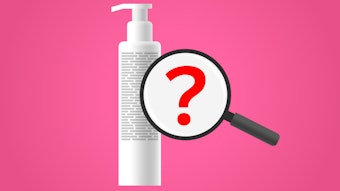The European Union (EU) issued the latest Adaptations to Technical Progress (ATP) on April 17, 2007. This ATP prohibited several ingredients and severely restricted an important preservative. The Scientific Committee on Consumer Products (SCCP) also issued many new opinions on butoxyethanol and other ingredients, in addition to requesting data for the use of verbena as a fragrance component in cosmetics. Latest ATP Decisions The ATPs most recently issued will have significant effects on cosmetic formulations. This ATP prohibits the use of sodium iodate as a preservative and Orange 10/Orange 11 (CI 45425) as a color. These ingredients are of little interest since no formulations in the United States use them; The major change of this ATP is the new restrictions on iodopropynyl butylcarbamate (IPBC).
Previously IPBC was allowed at 0.05% (500 ppm) with the required warning: “Contains iodine”—if used on leave-on products above 0.02% (200 ppm). The new regulations will go into effect April 19, 2009, and restrict IPBC to 0.02% (200 ppm) in rinse-off products with the required warning: “Not to be used for children under three years of age,” and will restrict leave-on products to 0.01% (100 ppm) except for deodorants and antiperspirants, where it is restricted to 0.0075% (75 ppm) with the same mandated warning. Further limitations include:
1. Not to be used in oral hygiene and lip care products
2. Not to be used in preparations for children under three years of age, except in bath products/shower gels and shampoos
3. Not to be used in body lotion and body cream or products intended for application on a large part of the body











